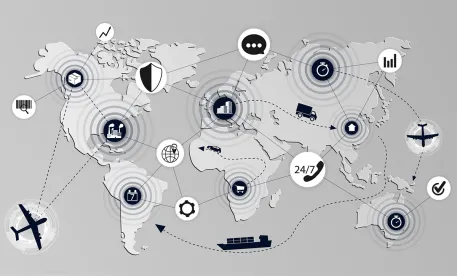The Biden administration recently announced major investments in the domestic production of key critical minerals and materials.
The minerals targeted by the Administration are the rare earth elements, lithium, and cobalt—found in products from personal rechargeable electronics and television screens, to household appliances, as well as those used in clean energy technologies like batteries, electric vehicles, wind turbines, and solar panels. The administration has framed its push as essential given the world’s transition to a clean energy economy, and the global demand for these critical minerals, the processed versions of which the U.S. has increasingly become dependent on foreign sources for. The administration particularly noted the anticipated demand for minerals such as lithium and graphite used in electric vehicle batteries, which it anticipated will increase by as much as 4,000 percent.
The announcement comes on the back of Executive Order 14017, America’s Supply Chains, signed a year ago, which ordered a review of vulnerabilities in the U.S.’s critical mineral and material supply chains, and the subsequent supply chain assessment which found that the U.S.’s over-reliance on foreign sources and adversarial nations for critical minerals and materials posed national and economic security threats.
According to a White House fact sheet, the “Administration has taken action across the Federal government to secure reliable and sustainable supplies of critical minerals and materials, while also upholding the Administration’s labor, environmental and environmental justice, and equity priorities.” It will achieve this by (i) updating outdated mining laws and regulations through the establishment of the Department of Interiors’ Interagency Working Group, that will lead an Administration effort on legislative and regulatory reform of mine permitting and oversight, and deliver its recommendations to Congress by November; (ii) updating and prioritizing the Federal list of critical minerals to include minerals essential to economic or national security and vulnerable to disruption, by directing Federal agencies to prioritize the production and processing of minerals, consistent with its environmental, social and labor principles; and (iii) strengthening critical mineral stockpiling, by better coordinating stockpiling activities to support the U.S. transition to clean energy and its national security needs.
On the private side, the Administration highlighted that MP Materials has been awarded $35 million by the federal government to separate and process heavy rare earth elements, and it has announced it will invest an additional $700 million in the magnet supply chain. Additionally, Berkshire Hathaway Energy Renewables will break ground on a facility to test the viability of a sustainable extraction process for lithium, as part of a multibillion-dollar investment in sustainable lithium production, and Redwood Materials will discuss a pilot, in partnership with Ford and Volvo, for collection and recycling of end-of-life lithium-ion batteries.




 />i
/>i

